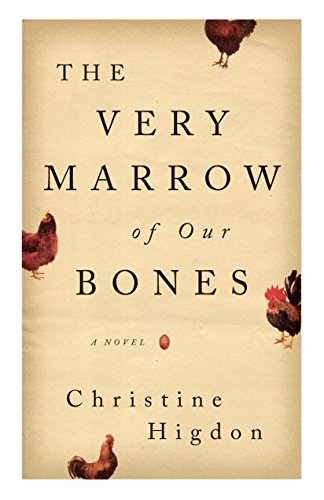On the same November day in 1967, two women disappear from Fraser Arm, B.C. One of them, Bette Parsons, leaves behind her husband Wally and their five children: Geordie, Alan, Ambrose, Trevor, and Lulu. Lulu, the youngest child and only daughter, discovers a note written by her mother but she tells no one about it. Lacking her mother’s supervision, Lulu is befriended by Aloysius McFee, the husband of the other woman who disappeared. At the age of 18, Lulu leaves her hometown and distances herself from her family. Forty years after her mother’s disappearance, she learns that someone else in her family has kept a secret, one for which “some serious atoning” is required.
This book
has several memorable characters. One is
the eldest Parson child, Geordie, who is 20 when his mother disappears. He has an intellectual disability but he
knows what is most important in life. His
loving and cheerful nature inspires the reader to hope that Geordie’s optimism will
be rewarded. Another unforgettable character
is Doris Tenpenny whose perspective, along with Lulu’s, is given
throughout. She is a mute who
communicates only through written notes.
She closely observes the human and natural world around her and becomes
a wise woman.
The book is
about secrets and their consequences; because of secrets, people are hurt “to the very marrow of our bones.” In the novel’s opening, we learn one of Lulu’s
secrets: the content of a note from her
mother. Lulu mentions that until her
mother left, “None of us knew about pain.
Not the kind that leaves you shattered and speechless.” Though that is not her intention, Lulu’s keeping
the note a secret just increases the pain.
And that is not the only secret she keeps throughout much of her
life. And she is not the only one who
has secrets which impact the lives of many others. Because people know Doris cannot easily tell
others their secrets, they confide in her; she does indeed keep their secrets,
but she also keeps one of her own which she realizes could have saved others
from suffering. The conclusion is that “Secrets
weigh” and leave people with “too much baggage on the flight [through life].” So much is lost because of secrets. In one case, Lulu suspects a secret “ruined”
a person: “In the end, I thought, it had
killed him.”
The reader will
not leave the book unscathed. At times I
was incredibly angry at people’s behaviour and choices though I could also
empathize because their choices were made for very understandable reasons;
people who are hurt or angry or ashamed or truly desperate do not always make
the best decisions. (There is only one
character whose behaviour I could not excuse, though that individual does
perhaps try to atone in the end.) As
expected, sections of the novel are incredibly sad, though there are also comic
scenes. And some sections left me
squirming in discomfort.
Not all of
the reader’s questions are answered by the end.
There are some things that one can only speculate about. Though some may disagree, I think the ending
is perfect, though it does leave room for a sequel. At times, I wished the point of view of
another character were given. A companion
novel giving the viewpoint of Wally or Aloysius would be interesting.
Should the
author choose to write a sequel or parallel novel, I would definitely read
it. On an emotional level, this one got
into the very marrow of my bones.
Note: I received an eARC of this book from the publisher via NetGalley.

No comments:
Post a Comment